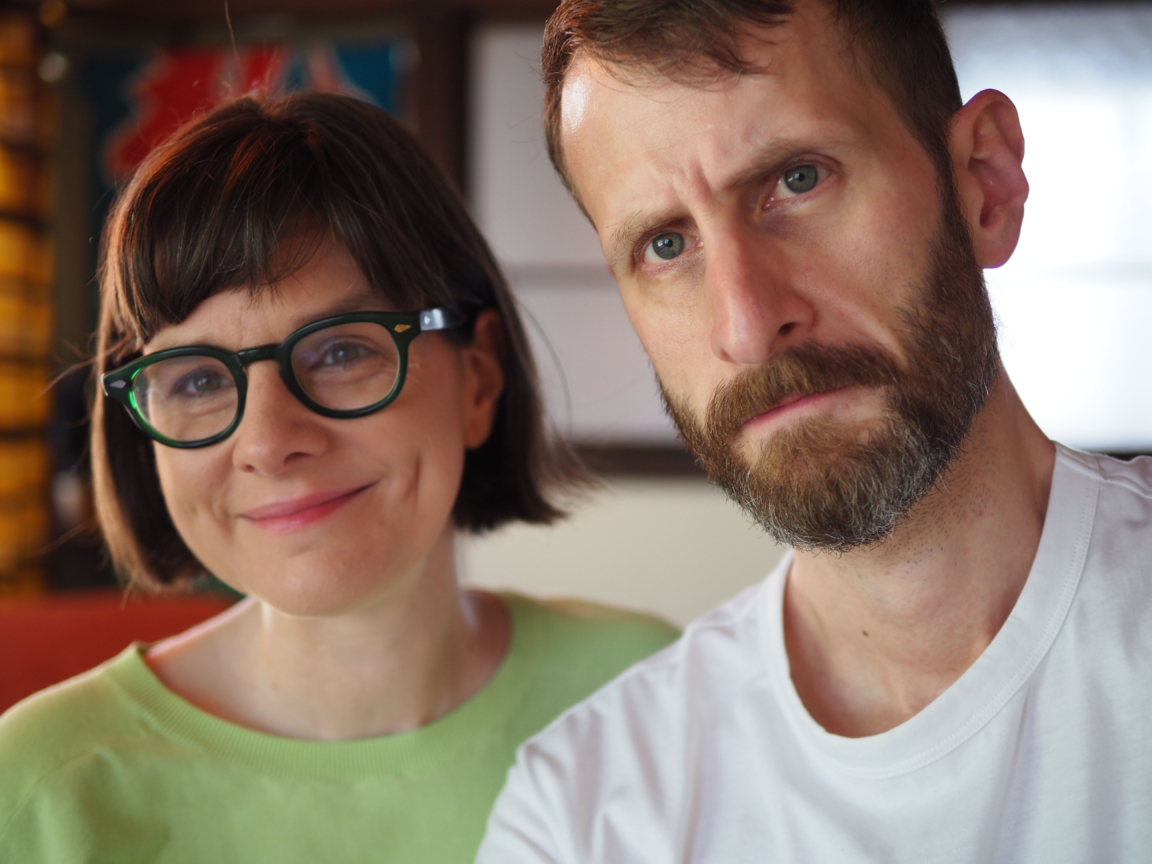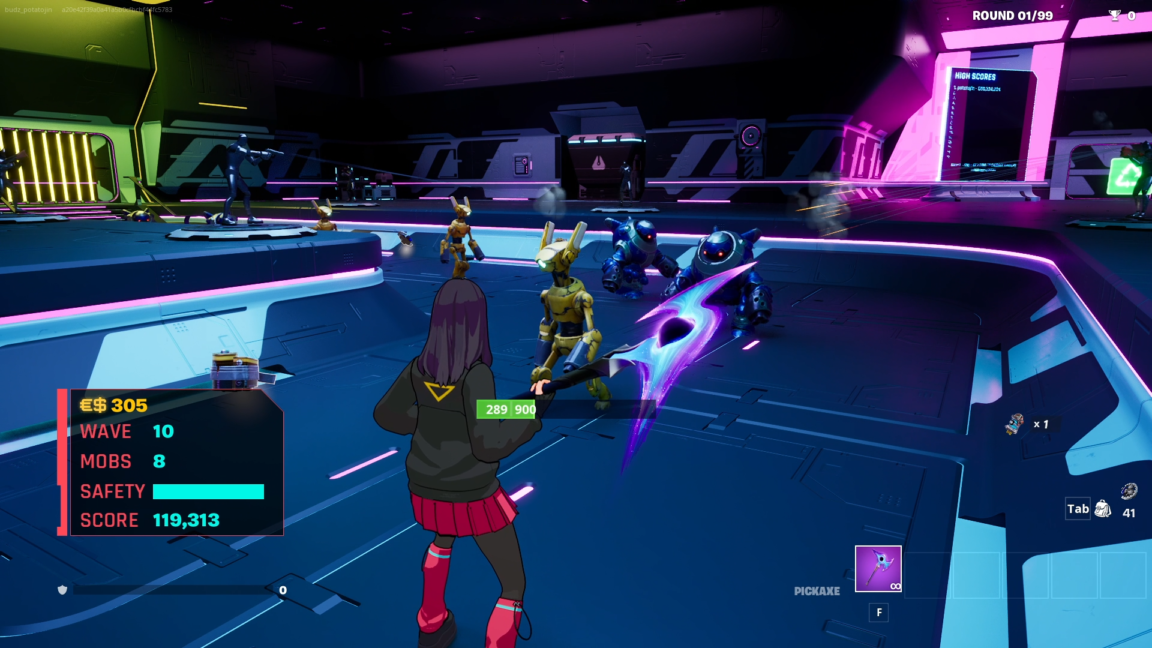


Today we are talking with Shibuya startup visa holder and co-founder of Cabbage Systems Margaret Isobel Robertson, to chat about Japan, business, and games. Cabbage Systems is a design-led studio that delivers innovative gaming experiences tailored to each project, forging partnerships with major companies like Disney and Sony. We interviewed them about their path to starting their own business in Shibuya, and their vision for the future.

Cabbage Systems Co-Founders, Margaret Isobel Robertson and Kevin Cancienne (Photo: Cabbage Systems)
− Please tell us about your entrepreneurial journey.
My co-founder Kevin Cancienne and I have both been making games for more than 20 years. We each started with the fundamentals of game creation: I got my start analyzing games as a journalist, and Kevin started by building simple online games as a programmer. We each began exploring what kinds of games work best in new technological environments or platforms – for example when mobile arrived as a platform, or when games first became popular within social media services like Facebook.
We’ve also both had experience as early employees at game studio start-ups – my co-founder was the first employee at ‘area/code’, an innovative game company that sold to Zynga, and I was the first senior game design hire at PlayDots, which grew to 100 people before selling to Take Two for $220m.
Our new company, Cabbage Systems, brings together both elements of those experiences. We’re using what we learned from helping grow those small studios to build a business exploring how games will evolve on new emerging platforms.
− Why did you choose Japan?
Japan was appealing to us commercially, creatively, and personally.
We came here from New York, which is an amazing city, but a challenging place to make games. The cost of living is extremely high, and the talent pool for game-related skills is relatively shallow.
Tokyo, in contrast, has a long and deep tradition of game-making, so we knew that there would be a lot of opportunities here to work with companies and individuals with the right talents for the games we wanted to make. We both grew up loving games that came from Japan — and from Shibuya particularly — so it was creatively exciting to get the chance to come and join that community.
And personally, we both love Japan. We’ve had a chance to visit many times over the last 20 years, and have many friends and contacts here.
− How did your startup evolve since launch?
We’ve been busy! Since arriving in Tokyo we’ve made and released two games, and our third will launch in the next few days. We’ve had a chance to participate in gaming events like Bitsummit, Tokyo Sandbox, and others as both volunteers and exhibitors. We’ve started collaborations with two Japanese game companies — one in Osaka, and one in Tokyo. We launched our website at www.cabbagesystems.com and our work has been featured in major gaming press outlets like Edge magazine and Game Developer.
Our goal as a company is to discover new forms of play, so we hope to be constantly evolving. Our favorite way to do that is by creating new games. We came here with no direct professional connections to the Japanese market, and it’s been very satisfying to meet collaborators and build connections by creating new products that get noticed. We’re always looking for new ways to create new games, so we hope this evolution continues.
− What steps did you take to apply for a Shibuya Startup Visa?
First, we did a lot of research, to make sure that we really understood the program and to figure out if we were a good fit. We tried hard to put together a thoughtful pitch that explained the merits of our business, how our backgrounds gave us the experience to run it, and why it made sense for us to be based in Shibuya.
At the same time, we made sure we were preparing for the personal side of the move. As well as learning what we’d need to do to get set up in Japan, we also had to learn the steps we needed to take to leave behind our lives in the US.
The application process itself was pretty straightforward and surprisingly fast – we had our interview in August 2022 and received our Certificate of Eligibility in early November.

The recently released game “Tower Defense: Robot Escape” (Photo: Cabbage Systems)
− What are your next steps?
Our new game has just come out, so all our energy is focused on that right now.
In December we start a new partnership with a Japanese company that specializes in metaverse games. We are very excited to collaborate with them on a new project.
Looking further ahead, our longer-term plans are to grow the studio and make more connections with local game companies who are interested in collaborating on games for an international market.
And then maybe sometime soon we would like to take a holiday!
− Could you share a message for entrepreneurs and startups who want to apply for Shibuya Startup Support (or are simply interested in the Japanese market)?
The program is very friendly! If you’re curious, you should reach out and find out more about the requirements and the opportunity. Moving your business to a new country is a big step, but Shibuya Startup Support makes it far more possible than trying to do it on your own. If you have the opportunity to be in Japan while you explore the possibility, come to one of SSS’s famous networking brunches to meet other founders and talk to the team directly.
If you are interested in the startup ecosystem and startup visas, please don’t hesitate to contact us, and follow us on social media to keep up-to-date on upcoming events!
More information on Shibuya’s Startup Visa program: https://shibuya-startup-support.jp/sws/
Shibuya Startup Support’s social media accounts:
LinkedIn:https://www.linkedin.com/company/shibuya-startup-support/
Facebook:https://www.facebook.com/shibuya.startup.support
Twitter:https://twitter.com/ShibuyaStartup